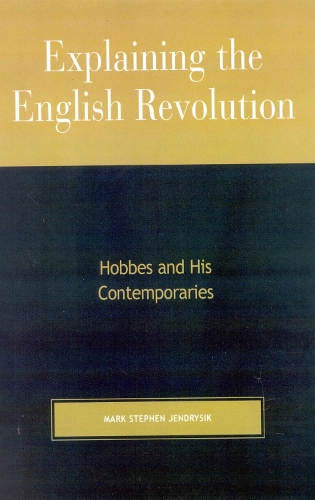
Explaining the English Revolution: Hobbes and His Contemporaries
(Paperback)
Publishing Details
Explaining the English Revolution: Hobbes and His Contemporaries
By (Author) Mark Stephen Jendrysik
Bloomsbury Publishing PLC
Lexington Books
18th April 2007
United States
Classifications
General
Non Fiction
Political science and theory
942.063
Physical Properties
Paperback
198
Width 154mm, Height 229mm, Spine 15mm
299g
Description
As we search for greater understanding of the origins of liberalism, religious toleration, and modern democratic thought, Mark Jendrysik's timely work examines the political and religious ideals that buttressed the first 'modern' revolution. Explaining the English Revolution studies the years 1649 to 1653, from regicide to the establishment of the Cromwellian Commonwealth, during which time English writers "took stock" of a disordered England stripped of the traditional ideas of political, moral, and social order and considered the possibilities for a politically and religiously reordered state. Jendrysik providesthrough a rich comparative analysis of the work of Thomas Hobbes and his contemporaries Filmer, Winstanley, Cromwell, and Miltona new understanding of the Civil War-era intelligentsia's assessment of the crisis in the body politic and their varied prescriptions and plans for a new post-revolutionary England.
Reviews
Explaining the English Revolution is both an accessible and engaging introduction to the political thought of the period and a lively challenge to the scholarship on Winstanley, Milton, Cromwell, Filmer, and Hobbes. Professor Jendrysik skillfully explicates the varieties of disorder perceived and propagated from 1649-1653. His careful analysis of contested concepts such as kingship, faction, freedom, and hierarchy insightfully adds to our understanding of the individual authors and to comparative studies in the field. -- Amy McCready, Bucknell University
Author Bio
Mark Stephen Jendrysik is assistant professor of politics in the Department of Political Science and Public Administration at the University of North Dakota.
